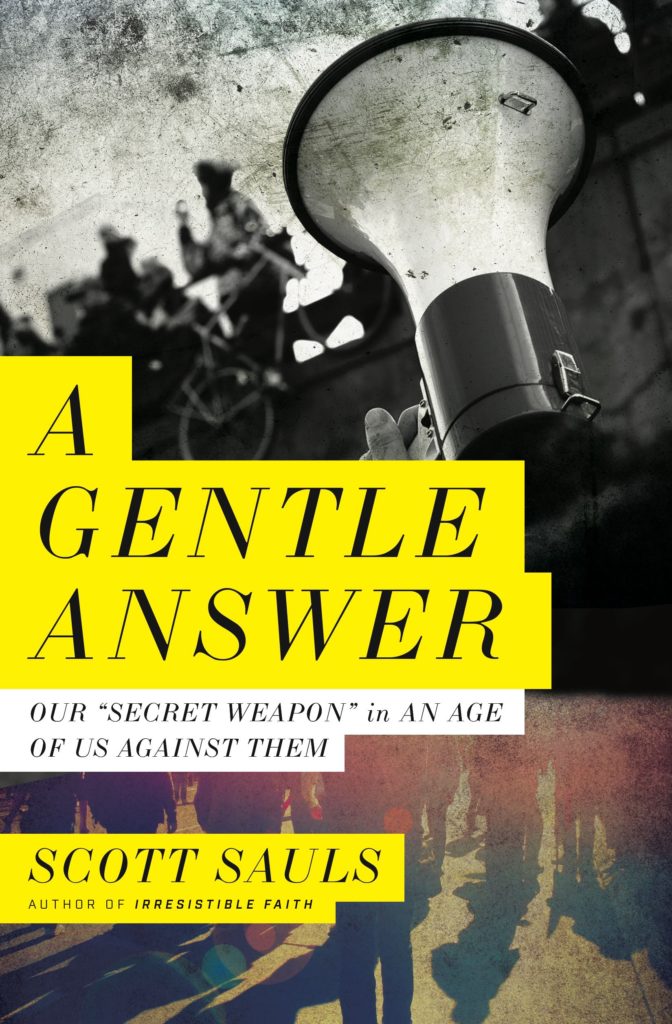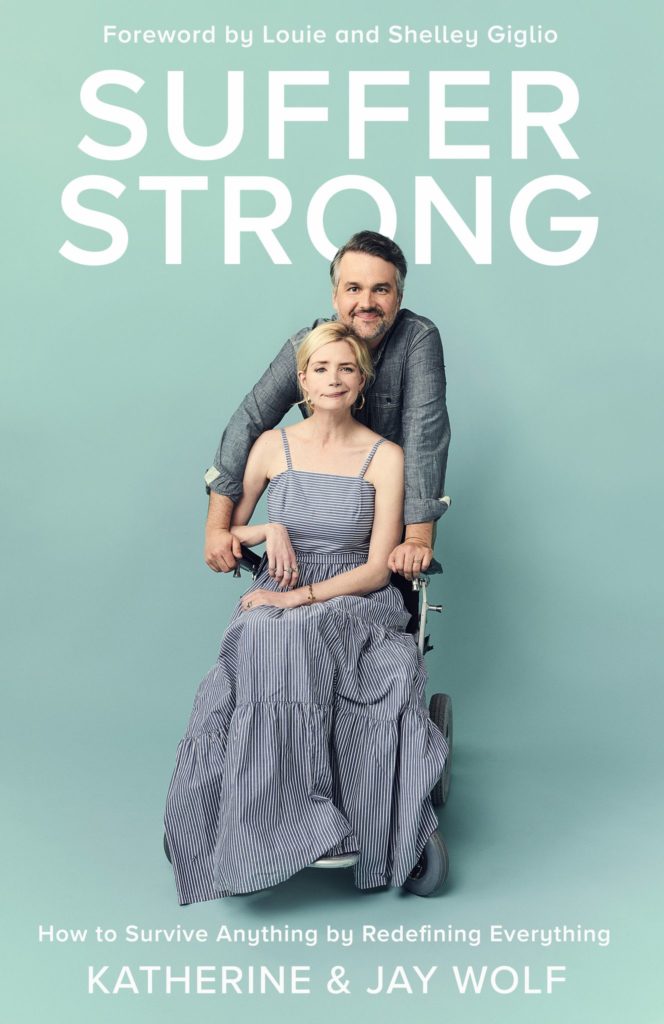Rewriting Our Stories, Redefining Our Lives: Scott Sauls and Jay & Katherine Wolfs
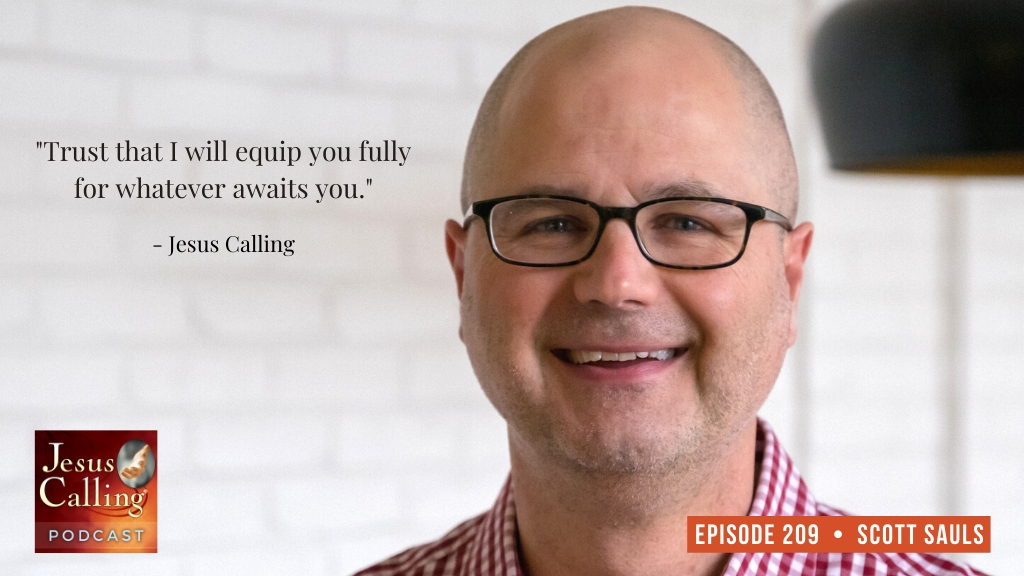
Narrator: Find out “what’s good” in your life—check out our brand-new Jesus Calling video series that helps Gen Z let go of negative and untrue stories, and remember God’s put good all around us, if we just take a second to look. Jesus Calling: What’s Good? on YouTube today!
Scott Sauls: God so loved the world that He gave His only begotten son. If that is the way that God chooses to relate to us, then why on earth would we not want to relate to our neighbors in the same way?
Rewriting Our Stories, Redefining Our Lives: Scott Sauls and Jay & Katherine Wolf – Episode #209
Narrator: Welcome to the Jesus Calling Podcast. We often tell ourselves the same stories over and over again—that we’re too bitterly divided to be kind, and that joy can only come in easy, happy times. But our guests this week are working hard to turn those narratives upside down, reminding us God can use any story to work good in our lives: pastor and author Scott Sauls, and advocates and writers Jay & Katherine Wolf.
First up, Scott Sauls is on a mission to love people, places, and the things of life, observing the example of Jesus when He walked the earth. Taking a look at our world now, which has become so divided in many ways, Scott turned to the pages of Scripture—and to people in more recent times who have modeled what kindness looks like—and he began to see how we could reach across divides to show compassion for people who think, believe, or look different from us. Along the way, he discovered a profoundly simple solution, which he writes about in his book A Gentle Answer.
Scott Sauls: My name is Scott Sauls. I am currently senior pastor at Christ Presbyterian Church in Nashville, Tennessee. I’m glad to be with you today.
Moving the Needle Toward Kindness
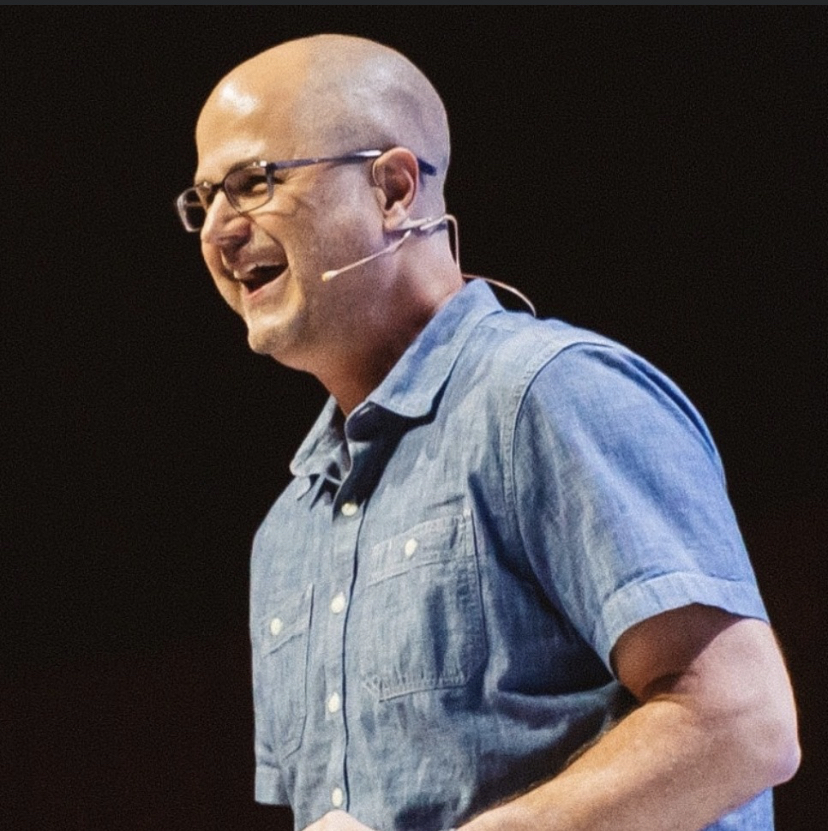
One New York Times writer said not long ago that there are people everywhere who are eagerly on the lookout for something to be offended by. Taking offense has become so contagious that writers said that we’re actually starting to look for things to be offended by. The apostle Paul talked about the same thing in one of his letters to Timothy. He said that there were people in the church, even, who craved controversy and quarrels. They were just looking for a fight. And, of course, the apostle Paul is not praising that posture, but he’s challenging it. And he’s trying to lead the people of God into the ways of gentleness and love of Christ.
And so we all should be kind, because every person that we meet is fighting a hard, hidden battle. In Luke chapter seven, the religious leaders, the Pharisees and scribes, looked down on a promiscuous woman with scorn and judgment. And Jesus is kind to her and extends grace and forgiveness to her. The way that He treats the woman caught in the act of adultery—the first thing He says to her is, “I do not condemn you.” And so I found myself asking the question, “What could it look like for followers of Christ, especially, to give ourselves to a gentleness movement or a kindness movement in a climate where kindness is so scarce?”
“What could it look like for followers of Christ, especially, to give ourselves to a gentleness movement or a kindness movement in a climate where kindness is so scarce?” – Scott Sauls
I think if we could get the order right, and start from a posture of no condemnation, and start from a posture of asking the question, “What is this person’s—or what is this group of people’s—hard, hidden battle?” We might end up moving out into the world with a lot less cynicism and a lot less outrage and a lot more hopefulness and a lot more gentleness.
One of my main inspirations is a man named Fred Rogers. Most people know him as Mr. Rogers of Mr. Rogers’ Neighborhood. What was so characteristic about him was he was so gentle and kind, and his favorite three words were, “I like you.” And it’s been very interesting to me that in this climate that we’re living in right now, there’s been a resurgence of interest and affection for Mr. Rogers. And people are pulling out the archives of his old episodes and watching them again, and introducing their children to him. And then a blockbuster film out of Hollywood starring Tom Hanks as Mr. Rogers [came out]. There’s just this very curious, interesting draw to him.
And I think that there’s something to be learned from that, that if Christians in particular can lean in again, broadly and collectively, to the Fruit of the Spirit, that includes gentleness. I wonder what that might do positively for the Christian witness in the world, if we removed ourselves from partisan bickering and if we refrained from things like gossip and negative speak—because cynicism and negativity are very contagious, but so are love and kindness. And so my hope is through A Gentle Answer to help move the needle in the direction of kindness.
“Cynicism and negativity are very contagious, but so are love and kindness.” – Scott Sauls
Love Others the Way God Loves Us
The mission statement of our church is, “To follow Christ in His mission of loving people, places, and things to life.” And beneath that is the belief that every single square inch of the universe—people, places, and things—belong to God, is created by God, and is entrusted to our care.
“Every single square inch of the universe—people, places, and things—belong to God, is created by God, and is entrusted to our care.” – Scott Sauls
Many people who are Christian don’t understand that there were two great commissions that were given to us in the Bible. And the first great commission was given all the way back at the beginning, when God said to Adam, “I want you to tend my garden.” Gardening is a metaphor for all work, and all work on some level involves planting or creating something new or pruning something that’s already there to revive it and to restore it or to bring healing to it. That applies to people who are doing landscaping or who work in the sanitation business or who are writers or creatives. And the list goes on. Any work that involves being creative or restoring people, places, or things that are experiencing brokenness can be considered just as much God’s work as the work of a pastor or a missionary.
Everybody’s job is an opportunity to serve God in the same way that a pastor’s job is an opportunity to serve God. Any work that involves creative activity or redeeming or restoring activity, in other words, and anything that creates or puts back together what something or someone that’s experiencing brokenness is also to be considered participation in God’s work in the world.
“Everybody’s job is an opportunity to serve God in the same way that a pastor’s job is an opportunity to serve God.” – Scott Sauls
Sarah Young, in fact, a member of our community—I would say that Sarah’s special contribution is to the life of the soul. I think the broad use and readership of Jesus Calling, especially, as well as her other books, her other devotional works, speaks for itself that it’s really struck a chord with readers, that there is a way not only to be loved and forgiven by God, but also to know Him personally and walk with Him closely. And I think Sarah has been a very quiet, gentle, faithful presence in that regard.
I first became aware of Jesus Calling a little bit before we moved to Nashville. I actually saw it sitting on an end table in a friend’s living room in New York City, and so I just picked it up and I said, “Oh, what’s this?” And looked at it and liked it. We actually bought a copy for, I think, it might have been for our oldest daughter. And it just became a book that we naturally would pick up on a regular basis in our house and just say, “Hey, I wonder what Jesus Calling says today?”
Then I arrive at Christ Presbyterian in Nashville, having no idea that Sarah and Steve are part of this community, and then discover that they are. And I met Sarah and [her husband] Steve, and then discovered that this little book has actually traveled the world many times over, and has gotten into millions and millions of hands and hearts and has made a marvelous difference in people’s lives, including ours.
This is the excerpt from Jesus Calling for February 6th, and it goes like this:
Come to Me and Rest. I am all about you, to bless and restore. Breathe Me in with each breath. The way just ahead of you is very steep. Slow down and cling tightly to My hand. I am teaching you a difficult lesson, learned only by hardship.
Lift up empty hands of faith to receive My precious Presence. Light, Life, Joy, and Peace flow freely through this gift. When your focus turns away from Me, you grasp for other things. You drop the glowing gift of My Presence as you reach for lifeless ashes. Return to Me; regain My Presence.
You know, I’ve been a Christian for over thirty years, and a pastor for over twenty-five. And I’ve still never met a single person who says that, “I became a Christian because somebody scolded me for this or that.” But I’ve met thousands of people who said, “I became a Christian because somebody loved me and was kind to me in spite of myself.”
And I think Christians have that resource to be more difficult to offend, because Christ chose not to be offended by us. He chose instead to love us and to forgive us and to draw us into His family and adopt us. And so it’s like the parable of the unmerciful servant. If I’ve been loved and forgiven in this way, why would I treat my fellow servants or my fellow human beings with scorn and outrage when God Himself has not treated me that way?
“Christians have that resource to be more difficult to offend, because Christ chose not to be offended by us. He chose instead to love us and to forgive us and to draw us into His family and adopt us.” – Scott Sauls
Narrator: You can find Scott’s book, A Gentle Answer, wherever you buy books.
We’ll be right back after a brief message about the great work that happens on behalf of military service members, veterans, and first responders through The Gary Sinise Foundation.
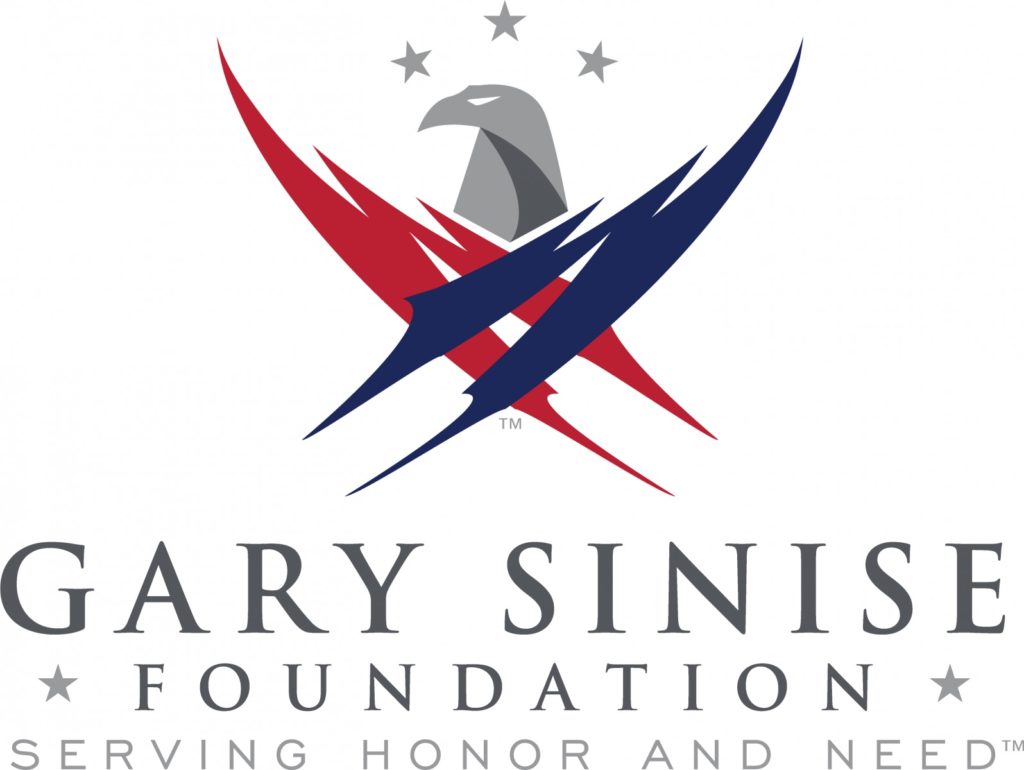
Ad: The Gary Sinise Foundation works to keep our defenders and their families strong each and every day. Join us as we show the pride and gratitude of our nation to all of its heroes. While we can never do enough for our defenders, veterans, first responders and the loved ones who sacrificed right alongside them, we can always do a little more. To make a donation, visit GarySiniseFoundation.org.
Narrator: Jay and Katherine Wolf could not have imagined what life would bring for them when their marriage began in 2004. Their journey seemed to be starting perfectly as Jay studied law and Katherine started a modeling career. After nearly four years together, they welcomed their first son, James, into their lives.
But one day in 2008, Katherine started feeling dizzy and nauseous. Minutes later she collapsed in the living room of their home—the victim of a massive brain stem stroke. By a miracle and through the good work of surgeons, she survived, but when she woke up from her coma, she couldn’t walk, see, or speak—or hear clearly. The “miracle” felt like a curse as Jay and Katherine prayed for total healing, which didn’t come. The couple candidly shares the pain and suffering of this season and how God walked them through this profound change in their lives to give them a new vision of what their lives could be, which they also talk about in their book Suffer Strong: How to Survive Anything by Redefining Everything.
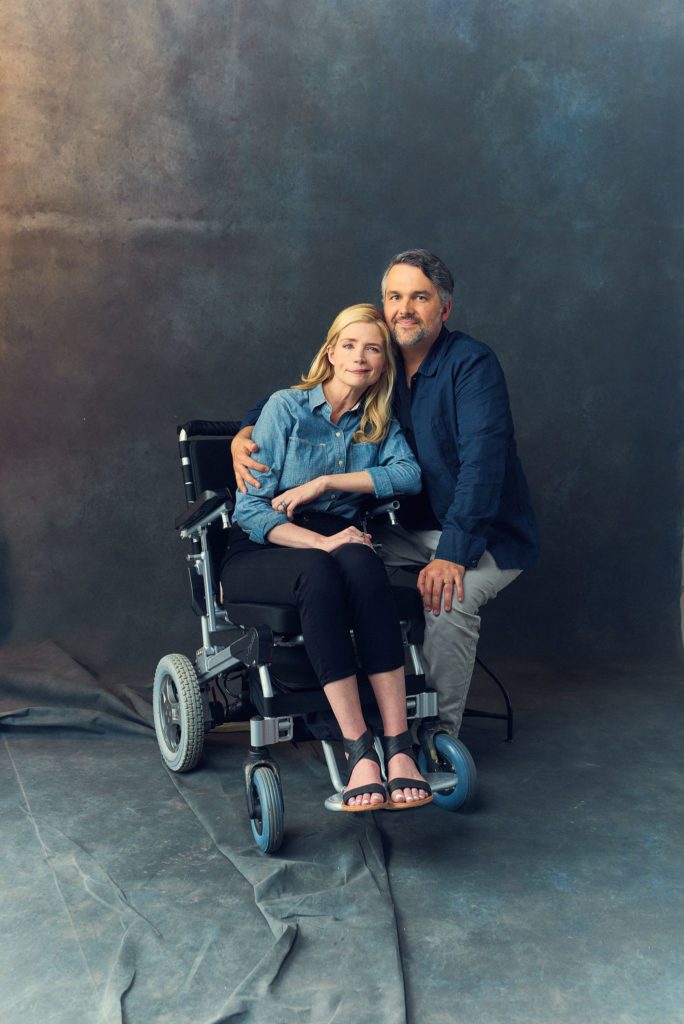
Katherine: I am Katherine Wolf, and I am an author and speaker. And I am an idol disruptor, I like to say. I am a joy rebel. I am a mother of two wonderful boys, and I’m wife to an amazing husband, Jay. And I am a stroke survivor.
Jay: My name is Jay Wolf, and I am a husband, dad. I’m a caregiver. I’m an advocate. But I most of all just love that Katherine and I get to live out a second chance life and do it together, and do what a lot of couples probably think is their worst nightmare, which is work together and do life together and raise kids together and be in ministry together. And we do that through Hope Heals and through Hope Heals Camp, our family camp for families with disabilities. And we write and speak.
Starting a Beautiful Life Together
Jay: A little bit of our background: we are both from the Deep South, met at a small Christian college called Samford University in Birmingham, Alabama. And God was clearly bringing us together, because it was kind of just wild how we both ended up there, and then we were on our own spiritual journeys, I think. During that time, I did the classic son of a preacher, you know, rebellion and just figuring my stuff out.
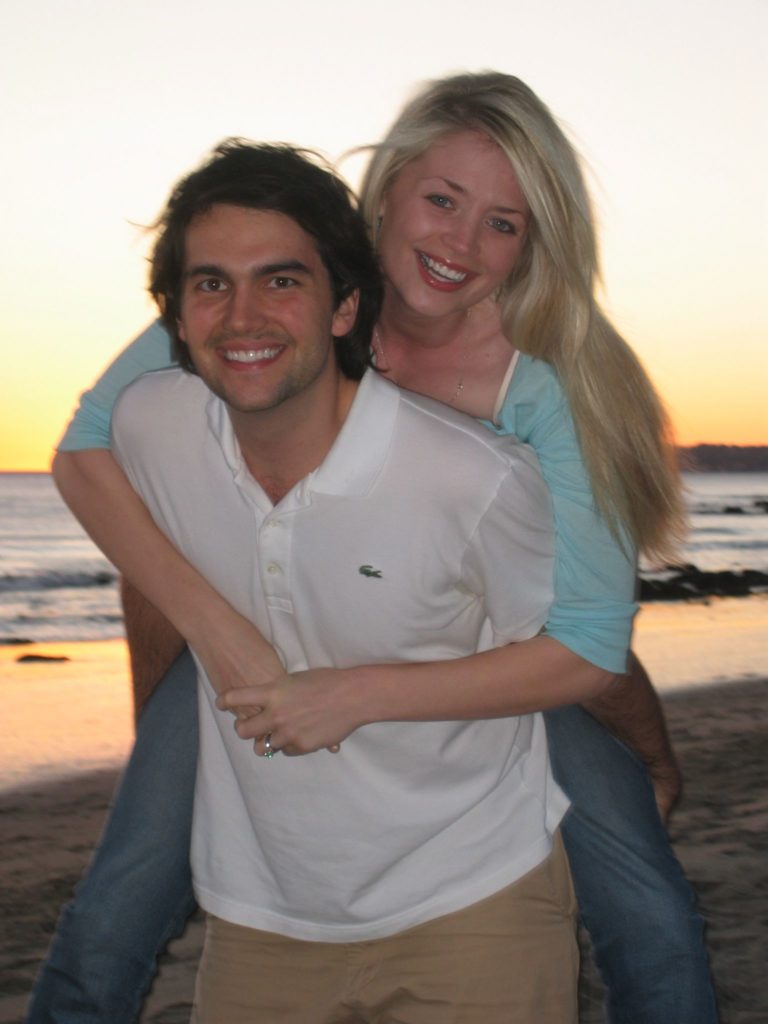
And what’s always been really beautiful, I think, about our relationship is God just brought us back to Himself through each other time and time again, and kind of brought us to a middle place of grace and love and truth. And again, that’s been embodied in each other.
And so then we got engaged and married at the end of college, and jumped into this new season of life in L.A. We didn’t know anybody there, didn’t have any real reason to go, except I think we were just called there by God, probably in large part because there would be a neurosurgeon several years down the road that would be able to help save Katherine’s life. So, again, you know, looking back on your story, it’s important and it’s profound to see some things you didn’t see in the moment because it was up close, and to see how God was putting those pieces together.
“Looking back on your story, it’s important and it’s profound to see some things you didn’t see in the moment because it was up close, and to see how God was putting those pieces together.” – Jay Wolf
But I went to law school at Pepperdine, and that took us to Malibu for several years where we lived on campus here in the married housing. And during that time, we kind of took my dad—again, who is a pastor—his advice of plugging in to our local church. And we’d always grown up in the church. We luckily went to this church called Bel Air Pres our first Sunday, and we found this young marrieds group, kind of a Sunday school class. And we just said, “You know what, this is it. This is the community we’re gonna make and give our lives and ourselves to.” And so much of our time in those early years before the stroke in L.A. was spent highly entrenched in the body of Christ, and it changed everything.
Katherine: If you were to see me today, the automatic assumption is, She’s a stroke survivor, which is why she’s in a wheelchair and why she can’t drive or why her face is paralyzed. All these things. However, that’s not exactly accurate. I’m severely disabled because of the sixteen-hour brain surgery that actually enabled me to live. The wise and careful neurosurgeon, Dr. Nestor Gonzalez, made the decision—he chose to operate on me. So he meticulously sacrificed things and made the decision to sacrifice things, which is such an important word picture of all of our lives that the Lord has to sacrifice things in order for other things to flourish or to live. And the neurosurgeon chose to wound me very greatly, [like] it says in Job, so that I could be healed.
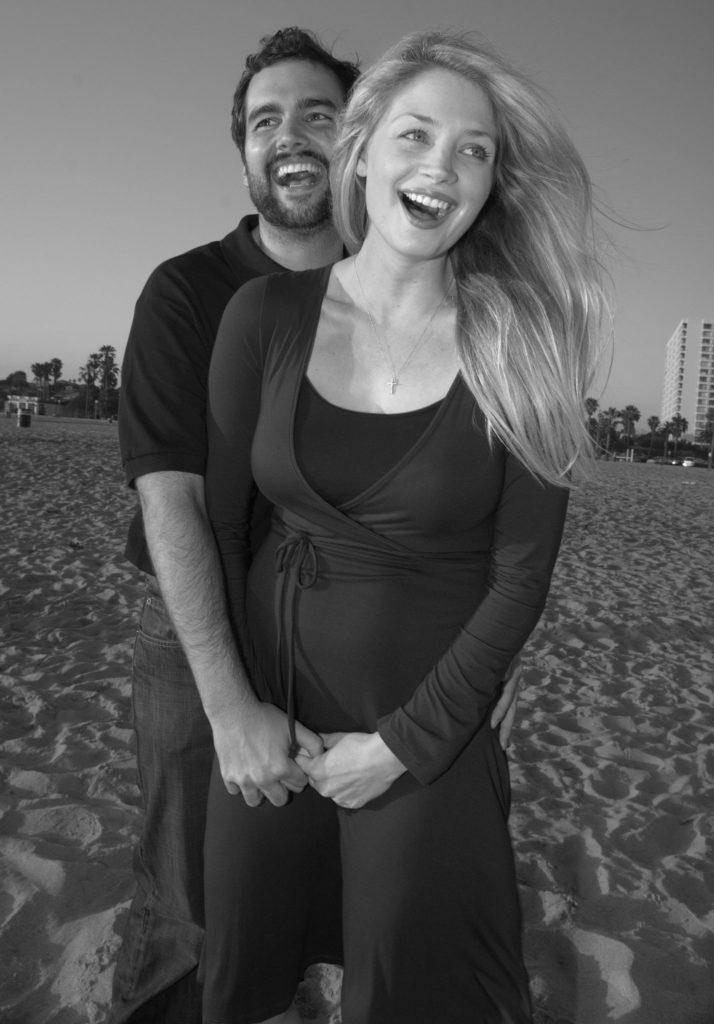
I had no medical history whatsoever, no family history, no warning signs. Nothing. So I had no idea what was happening. I felt dizzy and a little nauseous, and I had a six-month-old baby at home, so I thought, Surely these are like the byproduct of not sleeping well or much at all and breastfeeding and nothing more than that. And I had no reason to think it could be more.
So I put the baby down for a nap, and was in the next room preparing some lunch, and I fell to my hands and knees and they went numb. And very quickly, paramedics came in. We determined that there was something extremely wrong—that it was, in fact, the brain, and it was the very worst thing.
“I Survived A Stroke. Now What?”
Jay: Basically, the surgeon, when he came out of the surgery, said “Katherine lived, yet we don’t know if she’s gonna wake up or what the deficits will be.” And for me, for some reason, the idea that God had spared her life was the beginning of hope for me.
“The idea that God had spared her life was the beginning of hope for me.” – Jay Wolf
And so he said, “She lived.” And that’s the day we celebrate her second birthday. We call it Katherine Lived Day. It was April 22. She had a stroke the day before on the 21st, but surgery went sixteen hours and Katherine lived. And yet, you know, he described all these really worst-case scenarios. “She may be vegetative, she may be paralyzed, she may be locked in,” which is this really horrible possibility that you’re conscious, but you’re completely unable to move. And it’s a horrifying possibility that Katherine could have experienced but didn’t, thankfully.
But, you know, she was kind of upended in this way. We couldn’t get our heads around that they had removed part of her brain. They had sort of scraped her brain stem to make sure she would not have any further rupture from this crazy malformation.
When she woke up, there was this sort of confusion all around. Obviously, “What happened to my life?” She’s hooked up to all these tubes and life support and can’t speak and can barely get her head around this new reality. And certainly the loss of her motherhood she would say is probably the most painful upending.
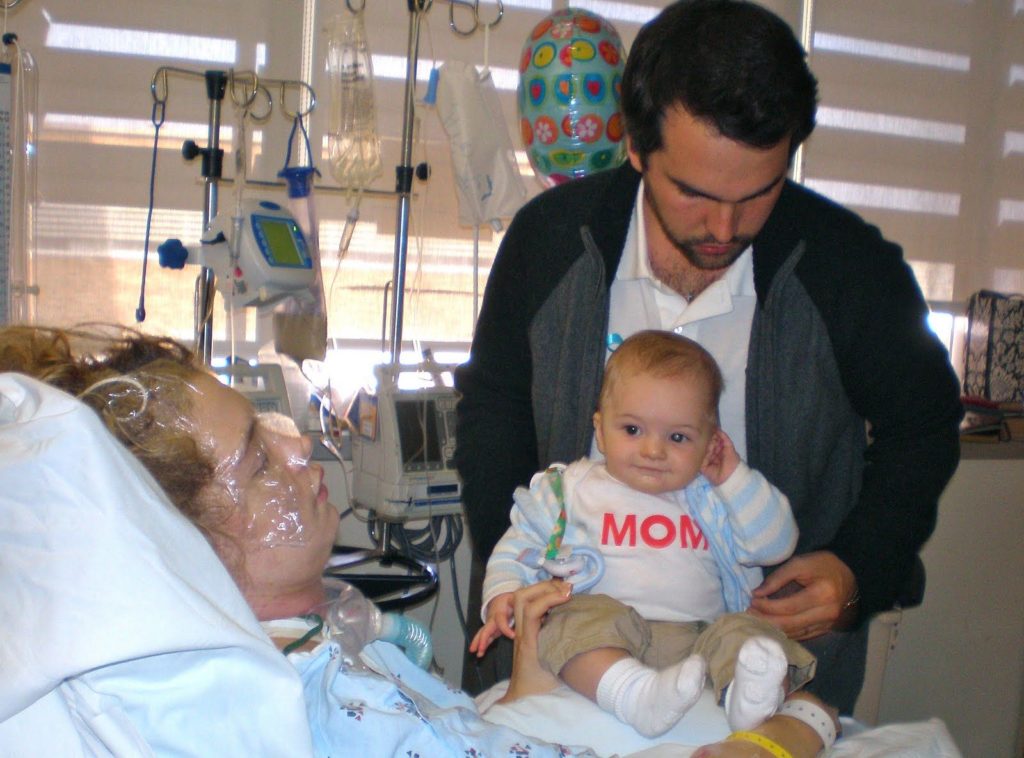
Katherine: It was just really, really rough to wake up. And yet, by far the worst part of waking up in the whole ordeal was the realization that I was not able to care for my baby anymore. Obviously, I could no longer walk, and I couldn’t really even see. I still have double vision to this day, in fact, and a number of issues with my right eye. And I was deaf in one ear, still am to this day. So I had to get used to hearing out of one ear only. My sweet little six-month-old sidekick was born to a twenty-five-year-old mother who had just recently turned twenty-six years old. He’s my little buddy, and he’s like the mascot of our small group at church, and I’m never away from him.
And then to suddenly go from that to watching him be cared for by others, honestly, I think that maternal instinct is so deep inside that when I would see him brought into the hospital, I would think every day—because it was like Groundhog Day for me—that whoever was bringing him into the room was bringing him in for him to then stay with me there. I didn’t understand that I couldn’t take care of him yet.
Jay: We pretty much were in emergency mode for about two years, and I think in some ways it’s a gift to not sort of be able to clearly process the full weight of your new future and new normal. I think that’s a gift that our brains sort of give us when we experience trauma. Obviously, at some point, we need to face the reality. But it’s happened to us, and how we can move forward without fear and a new kind of strength. But for us, we were in this hospital setting. Katherine is on life support for forty days, which also we thought was really just a sign and a little sort of glimmer that God was saying, “I’m still here. I haven’t abandoned you, even if I’m silent.”
”We thought [Katherine’s being on life support] was really just a sign and a little sort of glimmer that God was saying, ‘I’m still here. I haven’t abandoned you, even if I’m silent.’” – Jay Wolf
Confronted by a New Reality
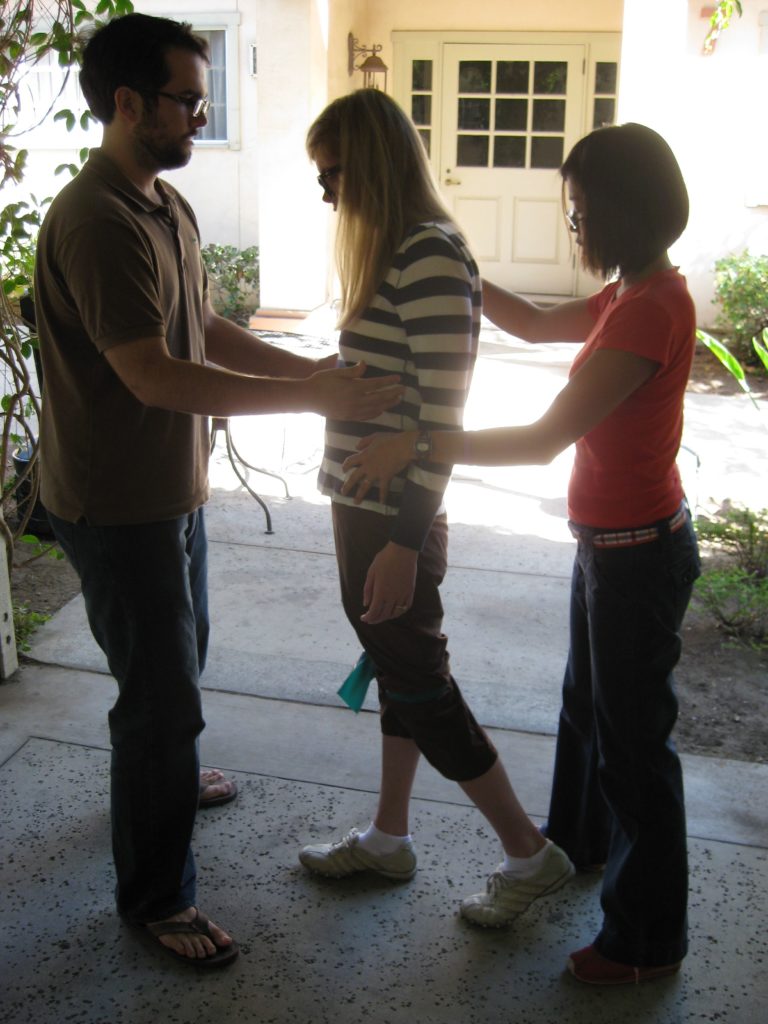
We would then go to neuro rehabs, and then a longer term rehab. We moved our little family to be next door—about an hour outside of L.A.—to this world-renowned brain rehab. And in that space, you know, we really confronted this reality. Wait, we’ve had all these people praying for us. We’ve had people all over the world, we had these prayers, this CaringBridge site set up. And we had millions of views on the page, 120 countries, and a lot of people just praying and just asking God to spare Katherine’s life and then heal her.
And then over the months of that not happening, you know, those visions dry up, and you wonder, Is it me? Was somebody lying? Was God lying? Is this a joke? What are we not doing right? And then you’re confronted with this reality, Maybe she’s not going to just be able to go back to the way things were before this. And that took a while to sort of let the reality sink in— painful realities, when you go from the law school mommies playing on the beach last month, to now you’re in brain rehab with everybody in the worst moments of their entire life, on the precipice of despair, thinking, That was my one shot. And it’s gone now.
And there was just darkness, spiritual darkness. You know, all of the worst experiences of humanity were all in one place there. And yet there was healing in that place, too. And again, I think we want to say it’s one or the other, “Oh, you’re in this healing mode,” or, “You’re in this despairing mode.” Sometimes they’re right in the same place together. And the calling is for us to go into that darkness and to find the treasure that God has for us there, and knowing that we’re not alone on that journey, that He’s with us, but that there’s something to unearth in that place that we can’t get anywhere else.
“I think we want to say it’s one or the other, ‘Oh, you’re in this healing mode,’ or, ‘You’re in this despairing mode.’ Sometimes they’re right in the same place together.” – Jay Wolf
Katherine: Isaiah 45:3 is one of our very favorite passages of scripture, where the Lord says, “I will give you hidden treasure in the darkness, riches found in secret places,” hidden treasures found in secret places actually, “so that you may know that I am God, the God of Israel, the God who summons you by name.” And that’s really been a deep comfort to us, is there is hidden treasure in secret places when we’re called into the darkness.
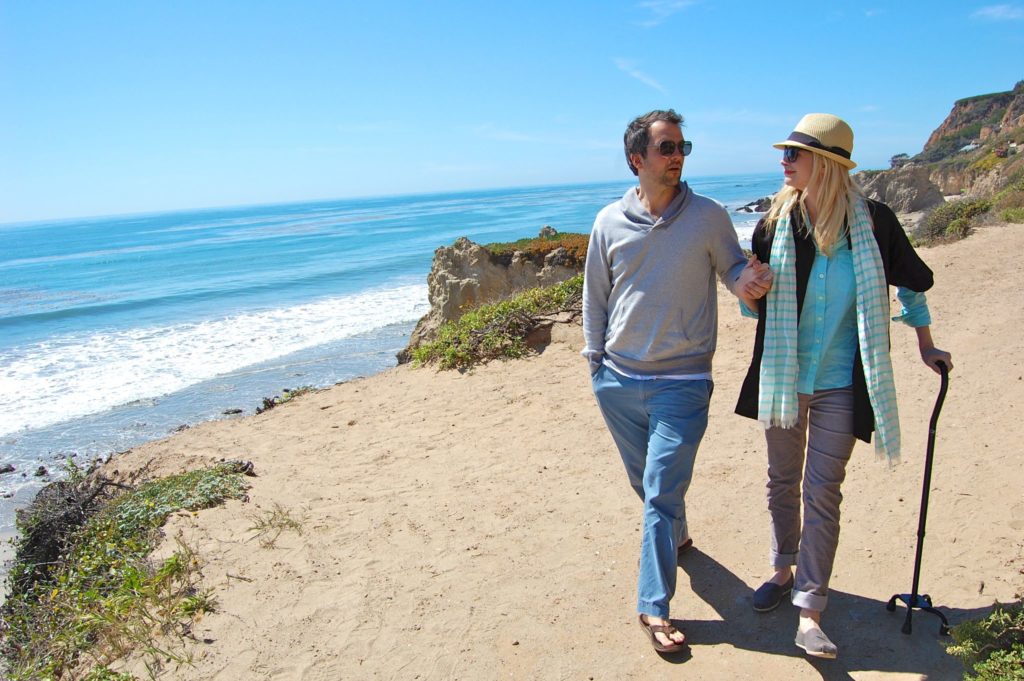
Suffering does have such a profound way of birthing you anew, and suddenly darkness you recognize is something to be survived. Darkness is not darkness to Him. Thank you, Jesus. It says in Psalms 139. But it’s still dark when you’re in the darkness and you’re looking for a way out.
Jay: And yet God was really so faithful to us, as we tried to be faithful to Him, to give us this vision of life with Him even in the midst of pain. I think certain seasons, especially right after the stroke, there was this kind of groaning you hear about in Romans 8, like that you can’t put words to your prayers even, because they’re just so deep. I remember, especially in those seasons, there was just something so profound about Jesus Calling, giving more of these words in a way that was accessible, in a way that was simple. I think it’s so daunting when you’ve had your heart broken to try to find a way back to God, and to try to find a way back to healing your spiritual life. And the whole series has impacted us and offered us, again, this simple invitation back to communion with God. And we’re so grateful.
What God Shows Us During Seasons of Suffering
Katherine: Jay has a capacity—almost like no one I’ve ever seen—to manage crisis in every way. Obviously, the intense medical crisis that is like tenfold, like nothing you’ve ever seen. It’s doctors, having really hard conversations, and being a good advocate, dealing with insurance companies and family dynamics that are complex, and then the actual patient and all the people and all the information and just everything. He just really rose to the occasion.
I don’t think it was really him—I mean, he’s awesome. But I think it was Christ and Him really rallying him for this, like, “Your whole life has been leading up to this moment. Now it’s time to rally. This is no longer a drill,” like, “You get to put into practice everything you believe, and I’m going to supernaturally supply you. My divine power will give you everything that you need to do this. And it is going to be hard. It’s going to be good.” And I think, yeah, he knew that.
“‘You get to put into practice everything you believe, and I’m going to supernaturally supply you. My divine power will give you everything that you need to do this. And it is going to be hard. It’s going to be good.’” – Katherine Wolf speaking how she believes God rallied her husband Jay
Jay: I think also seeing just Katherine’s heart, you know, you’re in the middle of horrific medical procedures all the time. And to see her have such compassion and tenderness to the nurse who is fumbling to get her vein for the I.V. over and over, the person who’s having to cause her pain. But she’s reaching out and smiling and saying, “It’s okay.” And just loving and trying to communicate her heart, you can’t fake that. It was an overflow of who she is and who she is at her core. And so it was just beautiful and humbling to think, Well, this is who I get to spend my life with, who is so kind and good to the core. I always knew she was, but now it’s for sure.
Katherine: We knew the presence of God would sustain, and His power would make a way for us to move forward. And we had no doubt that even though it was really, really horrific, that it was a season and that God was at work and we just had such deep, real faith that we almost had no other option but to respond in faith.
“We knew the presence of God would sustain, and His power would make a way for us to move forward.” – Katherine Wolf
Jay: And all of these ways in which we’ve been able to live into this upside-down kingdom by redefining how we think about our life and our pain have proven true, no matter if the pain is catastrophic medical issues or just a conflict in our relationship, unmet expectation in our world and in our lives and careers or whatever. And it’s all true, because it’s all the same spectrum of suffering that we find ourselves on. And we all have this opportunity to redefine sort of how we see ourselves in the world, and that changes how we get to lean into this new and unknown future.
Narrator: You can find Jay and Katherine’s book, Suffer Strong: How to Survive Anything by Redefining Everything, anywhere books are sold.
If you or someone you know could benefit from hearing more stories like this one, visit our podcast page at JesusCalling.com/podcast and look for our interview with Ann Voskamp about why God allows suffering in our lives.
Narrator: Next time on the Jesus Calling Podcast, we catch up with worship leader Matt Redman. Matt has found himself on stages all over the world, ministering to thousands of people through music, but reflects on how sometimes being on a public stage can be a barrier to connecting with those around you, and sometimes even with God.
Matt Redman: When you’re in some kind of ministry, up front on a stage or something, for me it’s the music. If you’re not careful, that stage can become a barrier. It can become a barrier to letting other people into your life to speak into your life, to look into your life, to be close to accountability in a sharpening, or that kind of thing. But also, you can even use the stage as a barrier to letting God work in your life.
Narrator: Want to hear more inspirational stories of people who have been changed by a closer walk with God? Then subscribe today to the Jesus Calling Podcast on Apple Podcasts, Stitcher, or wherever you listen to your podcasts. And please be sure to leave a review, which helps us reach and inspire others with these stories. Plus, if you like seeing our guests as well as hearing them, you can find video interviews available on our Youtube channel at youtube.com/jesuscallingbook, on Facebook, and on the Jesus Calling Instagram page.
